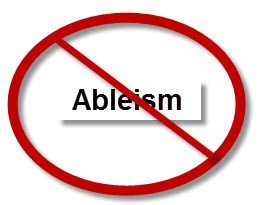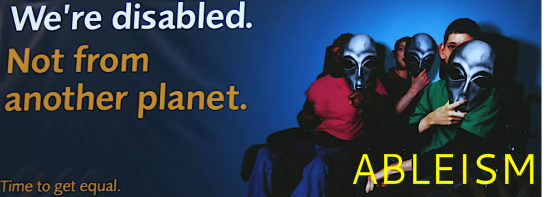A recent article on BBC News explores the misconception that people with disabilities are unhappy. While research shows that the opposite is true, able-bodied people still believe that having a disability means that one no longer has a good quality of life.
From experience as a wheelchair user, I can confidently say that one of the hardest things to deal with are other people’s attitudes towards you and physical barriers; basically, things that are outside our own immediate control.
Its important to point out that for a lot of us, there are definitely internal and psychological processes we have to go through in learning to love ourselves and embrace our differences despite such barriers. While this is difficult enough as it is, it makes it harder to accept your difference when the people around you treat you differently from others, mainly in a patronising way, based on that difference. It’s incredibly frustrating when people who don’t even know anything about me give me the sympathetic look followed by a pat on the head.
This article talks about the “disability paradox”, where the quality of life for a disabled person is just as good, if not better than that of an able-bodied person despite the stigmatisation that the quality of life would surely be worse. I can’t speak for the entire disabled community, but from my own experience I can say that the lessons learnt from having a disability far outweigh the day-to-day difficulties that I have to go through and the rough periods that I have been during the past, and probably will go through in the future as well.
I also don’t believe that this makes me ‘special’ in any kind of way. There’s not a single person in this world who hasn’t been through rough patches and grown as a person as a result of that. The only difference with people with disabilities, particularly a visible disability is that the very visibility of my hardship is the basis by which people make their first impressions about me. Not only that, but something about the wheelchair makes people think that we are less competent of navigating ourselves in the world.
This navigation doesn’t have to be difficult, but because there is no such thing as an equal playing field when it comes to equal treatment and access, it is difficult. The actual disability doesn’t have to be the source of one’s unhappiness but living in a world that was built to systematically keep people of ‘difference’, people like you, on the margins of society would be a reason to be unhappy.
At the risk of sounding soppy and sentimental, the resilience of people with disabilities mean that we can generally deal with it when shit hits the fan. But we shouldn’t have to. Everyone’s unique worldview and life experiences should be celebrated and embraced and that is the world we should be building; not one where difference is seen as a disadvantage and to be responded to with sympathy.







Great article, Latifa! As a wheelchair user myself, I can totally relate to much of what you’re saying and totally agree. What is it with the pats on the head? Drives me nuts!!!
Sure, being disabled by spinal injury does not mean i can not be as happy as the next person. But i am also realistic in accepting it is difficult at times and does get to me, especially being in pain. I can not gloss over that. I am unhappy at times due to my condition. I do not like to be treated any different than the next person though, so i get what the article is saying there.
What annoys me much more is this idea in the medical profession that people in pain must somehow have some emotion disturbance or depression that makes it worse. Then they treat that like it is the primary pain source, rather than the clinical issues.
I went overnight from working 60 hour weeks to struggling to walk. ACC got a specialist to say it was a pain syndrome and the pain clinic treated me like it was all in my head for TWO YEARS of severe pain.
Eventually the surgeon found bone cutting into my spinal cord and sciatic nerve and I was sent for urgent surgery. It was too late. Permanent damage and severe pain on a regular basis.
Sure, i can still be happy, but i am a little pissed off too. Especially at National’s crooked ACC purge.
An encouraging and motivating article, I must say, and yes, it is probably the discrimination, patronising and stigmatising of people with disabilities, that is the greatest barrier for disabled to feel accepted and respected.
At the same time there are many forms of disability, and some allow easier accommodation and adjustment to coping with everyday life, also allowing lots of fun and enjoyment, but there are also some disabilities that can make life damned hard to deal with.
Having met a fair few friends and associates with mental health issues, some of them did perhaps have some good times in life, but also repeatedly went through living hell, and few if any people around them showed much understanding. Medication and counseling may help some, but for others it is ongoing experimenting with what is the right script for the condition.
And again, I wish MSD and WINZ would reconsider their sanctions driven regime, communicating endless expectations and supposed “opportunities”, but which too often represent high risk endeavours, not really being much helpful. The draconian welfare reforms with new work ability criteria for sick and disabled they pushed through last year need to be reversed, full stop. Replace that with true support, with a respectful, considerate, collaborative approach, where the clients get more say and have their medical records get taken seriously, thanks.
Why review so many every 3 months and in other cases 2 years, where their conditions are permanent and clear? It makes no sense and wastes the time of medical professionals, clients and admin staff, who may be tasked to offer real support.
Hold employers and WINZ responsible to accommodate the needs of disabled without work, and honour the UN declaration of the rights of disabled persons, then we may make some progress.
Comments are closed.